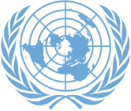Co-chairpersons
Your Majesties
Your Excellencies
Secretary-General
The opportunity to meet like this is a rare privilege and I very much appreciate
the chance to hear your views and share your experiences. So, I would like to
thank our Co-Chairpersons and Secretary-General very much indeed for bringing
us all together again. It gives me the opportunity to express my people’s deepest
sympathy and condolences to our American hosts, whose people have suffered
so much from the effects of Hurricane Katrina.
Your Excellencies,
In assessing our progress in Brunei Darussalam towards the Millennium Goals,
one thing has become clearly apparent. The Goals have taken on an even
deeper significance than perhaps we initially realized.
At first they seemed to represent a kind of development checklist. Some set
national aims such as halving extreme poverty, establishing universal primary
education, reducing infant and maternal mortality, reversing the spread of
HIV/AIDS and endemic diseases and setting economic targets.
Others were aimed at universal objectives, promoting gender equality, sustaining
the environment, and developing international partnerships. Looking at them in
this way, our people at first tended to see them as targets that mainly applied to
other countries in the world beyond our shores.
They felt they had, in fact, already reached most of the specific social, economic
and cultural goals. So, the instinctive feeling that the Millennium Goals largely
applied to other countries was perhaps quite understandable.
2
That, Your Excellencies, was five years ago. Since then, there have been
profound changes. They have led to a far deeper understanding among our
people. This has been prompted by real events. The outside world has imposed
itself on our region in dramatic fashion. Our people have witnessed terrorist
attacks, natural disasters, climate changes, strange new viruses, often
bewildering new technology, and rapid and sometimes equally bewildering
economic change.
All this has shown us that, in today’s reality, the expression “the world beyond
our shores” does not have a great deal of meaning. There may be other
countries beyond our shores. But there is, in fact, just one world which we all
share.
This has brought new realizations. They can be put quite simply that the future
will involve more and more contact with the rest of the world. We will be more
and more affected by what happens outside our borders. And we will be more
and more dependent on that outside world. This means one thing. Future
peace, prosperity and confidence depend not just on ourselves but on the
success of all nations. Hence, we are all partners, no matter what our
backgrounds, cultures, faiths and histories.
In other words, our people have begun to realize that confidence in the future for
one community can only be achieved if all communities feel similar confidence.
For us, this understanding has been the most important result of setting up the
Millennium Goals. We have realized that, unless the goals are reached by
everyone, there is no lasting security. Each failed objective is a root cause of
insecurity.
Your Excellencies,
This places the Millennium Goals in an extra dimension. It reveals them as
crucial not merely for each individual nation and its people, but as central to the
profound political, economic, cultural and social challenges we must all meet
together. Achieving the goals will help consign the twentieth century concept of
first, second and third world countries to history. It will help to develop a single
one twenty-first century world in which we all have shared responsibilities and
shared hopes. In this way, Your Excellencies, our people see the Millennium
goals as a historic United Nations task and we will continue to work with our
fellow members to do whatever we can to ensure that we all reach the targets we
have accepted.
Thank you.


